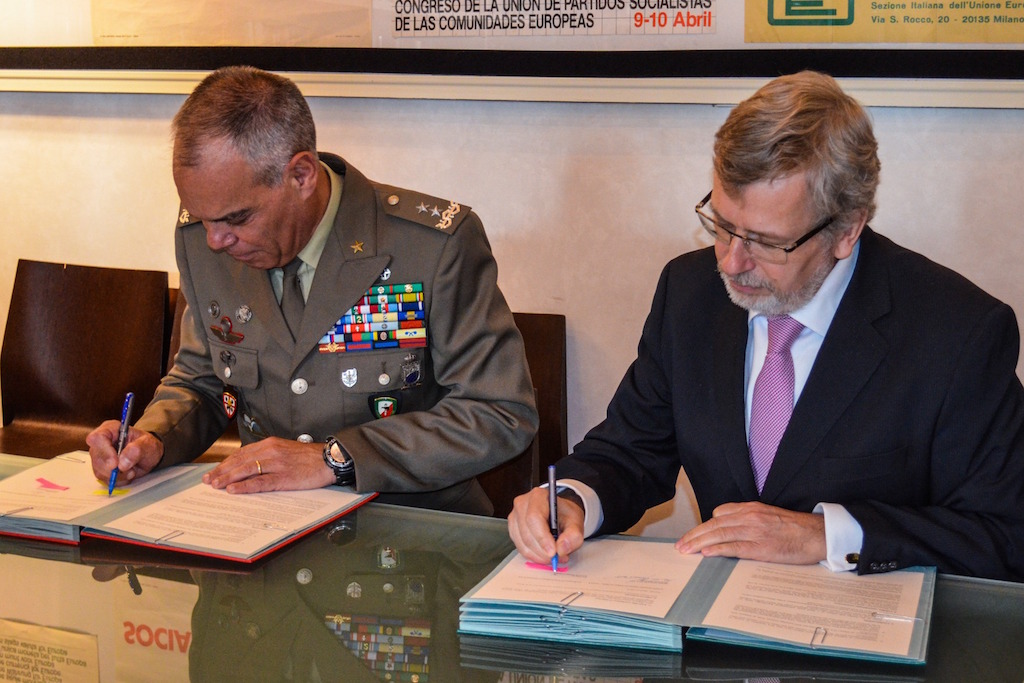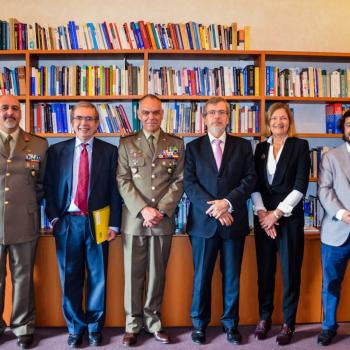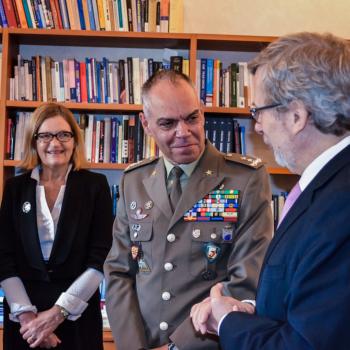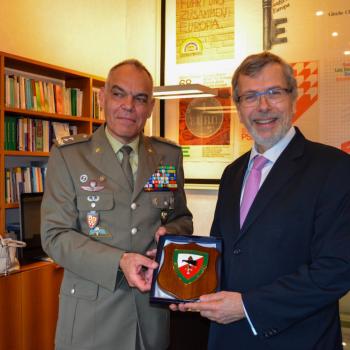
San Domenico di Fiesole (FI), 17th April 2018. A Memorandum of Cooperation (MOC) was signed between the European University Institute (EUI) and the Nato Rapid Deployable Corps - Italy (NRDC-ITA). The agreement will provide the parties with the possibility to develop training and research projects on issues of common interest related to the understanding of the current international crisis scenarios, and was signed today by Prof. Renaud DEHOUSSE, President of the EUI, and by Major General Maurizio RICCÒ, Chief of Staff of the NRDC-ITA, in the presence of some University executives: H.E. the Ambassador Vincenzo GRASSI, General Secretary, Prof. Brigid LAFFAN, Director of the "Robert Schuman Centre for Advanced Studies" and Prof Luís Miguel Poiares MADURO, Director of the "School of Transnational Governance".
The agreement is aimed at developing initiatives of mutual collaboration between analysts and experts of the NRDC-ITA and researchers and fellows of the Institute, in particular of the Robert Schuman Centre for Advanced Studies and of the Middle East Directions Program, the research centre at the heart of the Institute with a marked vocation for the Middle East and North Africa (MENA) studies.
It is also part of the agreement to share studies and reports between parties in addition to the participation of researchers and military experts of the headquarters in a combined analysis of the causes of instability of real crisis scenarios. Personnel of NRDC-ITA will also have access to courses, seminars and training sessions offered by the Institute, taking part, when required also as an instructor.
"There is no doubt that the identification of possible solutions to complex problems can only come from an in-depth interdisciplinary knowledge of them and it is in this perspective that the agreement has been devised. - declared General Maurizio RICCÒ - The European University Institute and the Robert Schuman Centre for Advanced Studies have a well-recognized experience in this field and the NRDC-ITA is willing to learn to corroborate its own process of Knowledge Development (KD), to benefit from a better understanding of culture, the socio-political and economic dynamics, and a more rational decision-making process and a more adherent operational planning ".
The KD section of the Headquarters is formed of both civilian and military analysts who, through the fusion of information from purely military sources along with those available in the academic field, are given the task of understanding complex systems. They develop political, economic, social and infrastructure analysis of crisis areas.









